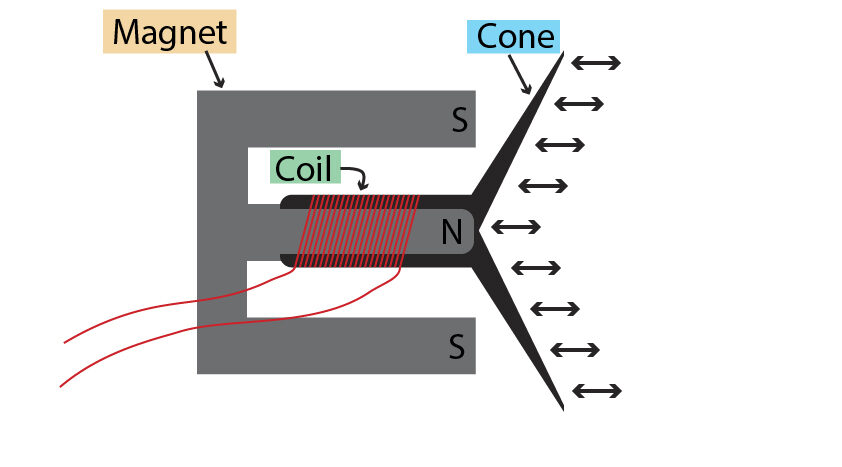AQA GCSE Loudspeaker (Physics)
Loudspeaker
A loudspeaker is more commonly known as a speaker and they are found in various devices, including headphones.
Loudspeakers and headphones convert variations in current in an electrical circuit to pressure variations in sound waves.
A loudspeaker will use the motor effect to produce a sound wave.

How a loudspeaker works
1. An alternating current passes through the coil of wire.
2. This will set up a changing magnetic field around the coil which will interact with the permanent magnetic field of the magnet.
3.Due to the motor effect, the coil will experience a changing force. The force will change in direction constantly, due to the alternating current.
4. As the coil moves backwards and forwards, it is attached to the cone, so the cone vibrates backwards and forwards creating sound waves
Practice Question
1. Explain how a loudspeaker uses the motor effect.
2. Explain how a loudspeaker works
3. If the frequency of current is increased, how would this affect the sound produced.
Absorption and Emission of EM Radiation
JJ Thomson and Plum pudding model
Ernest Rutherford and the Nuclear Model
Niels Bohr changing the Nuclear Model
Discovering the Proton and Neutron
Measuring radiation from radioactivity
Radiation types and properties
Random nature of radioactive decay
Radioactive contamination or irradiation
Hazards of contamination and irradiation
Studies on the effects of radiation on humans
Different half lives of radioactive isotopes
Nuclear Fission Chain Reaction
Writing nuclear fission equations
Drawing ray diagrams for a concave lens
Drawing Ray Diagram to produce a virtual image for a convex lens
Drawing ray diagram to produce a real image for a convex lens.
Specular and Diffuse Reflection
Seeing Coloured Objects Part 2
Viewing objects through coloured filters
Transparent, Translucent and Opaque